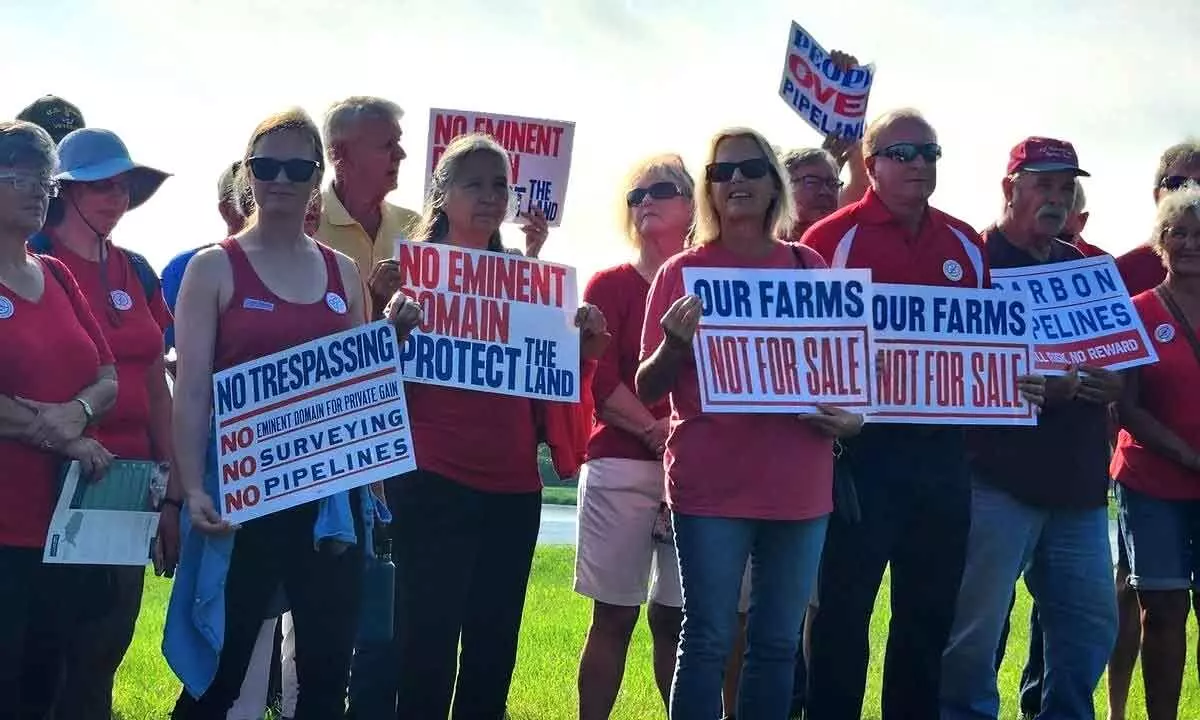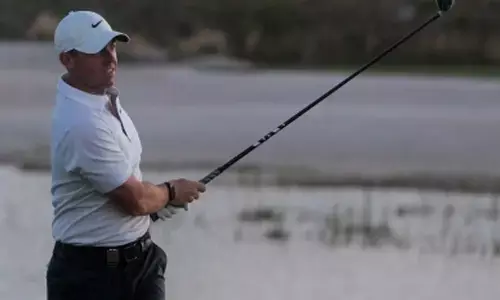When activism informed by science

Navigator CO2 is one of three firms that have planned to build carbon capture pipelines in the Midwest, promoting what climate advocates and scientists have decried as an energy-intensive, unproven false solution that diverts focus away from efforts to slash fossil fuel emissions and transition to renewable energy
Climate action advocates and scientists joined residents of five Midwestern states in applauding after a Nebraska firm cancelled plans to build a carbon pipeline, following outcry from the public and opponents of “dangerous, wasteful” carbon capture schemes.
Navigator CO2 Ventures said it was abandoning plans to build the $3.5 billion, 1,300-mile Heartland Greenway pipeline project — whose backers included investment firm BlackRock and Valero Energy —after South Dakota regulators denied a permit. The company cited “the unpredictable nature of the regulatory and government processes involved,” but advocates in the five states that would have been affected credited grassroots campaigning, including by residents who spoke out against the company’s plan to potentially use eminent domain to gain access to land.
“As soon as Iowans learned about CO2 pipelines we knew these were not pipelines we wanted in our communities,” said Susan and Jerry Stoefen, members of Iowa Citizens for Community Improvement. “Iowans organized to be heard: ‘No CO2 Pipelines, No Eminent Domain!’ Now is the time for Iowans to find reals solutions to reducing CO2 emissions that don’t degrade our land, water, and air.”
One Iowa resident summed up the victory as, “A bunch of elderly farmers without internet just took down BlackRock.” Along with Iowa and Nebraska, the pipeline would have cut through parts of South Dakota, Minnesota, and Illinois, where Navigator CO2 planned to store liquefied carbon deep underground after capturing it and transporting it from 18 ethanol plants owned by Poet, the world’s largest ethanol producer, and Iowa Fertilizer Company.
The company is one of three firms that have planned to build carbon capture pipelines in the Midwest, promoting what climate advocates and scientists have decried as an energy-intensive, unproven false solution that diverts focus away from efforts to slash fossil fuel emissions and transition to renewable energy. Summit Carbon Solutions and Wolf Carbon Solutions also have pipeline proposals, but Summit announced Thursday it was delaying construction of its $5.5 billion project by two years until 2026, citing permit denials similar to Navigator’s.
US President Joe Biden has made carbon capture a focus of his climate plans, announcing an investment of up to $1.2 billion for two major direct-air carbon capture facilities in Texas and Louisiana earlier this year. “While the federal government keeps trying to waste billions of dollars to promote these massive carbon pipelines, grassroots organizing is winning the fight to stop these egregious handouts to corporate polluters,” said Emily Wurth, managing director of organizing for Food & Water Watch. “These carbon pipelines will not reduce emissions—they are dangerous, wasteful schemes to prolong and expand polluting industries. Instead of throwing away money supporting polluters, the government should invest in proven clean energy solutions, not carbon capture pipe dreams.”
In addition to warning that carbon capture is a false solution to the climate crisis, critics warned that a rupture of a pipeline carrying highly pressurized CO2—an asphyxiant—could pose a major public health threat to nearby communities, as one accident did in the town of Sartartia, Mississippi in 2021.
Both Summit and Navigator initially warned residents living in areas that would be affected by the pipelines that they could resort to eminent domain—a legal process by which companies can gain access to land when a landowner refuses to grant it—and Summit has already pursued dozens of eminent domain orders for its proposed pipeline.
Although Navigator has not yet pursued the actions, the company’s vice president of government and public affairs, Elizabeth Burns-Thompson, said at a public debate in August that it couldn’t guarantee eminent domain wouldn’t be used to complete Heartland Greenway.
Biologist Sandra Steingraber, a vocal critic of carbon capture schemes, celebrated the demise of the proposed pipeline, whose “cause of death,” she said, was “citizen activism informed by science.” “Piping pressurized supercritical CO2 all over creation,” said Steingraber, “endangers people, destroys farmland, [and] does nothing meaningful for the climate.” Earlier this month, Reps. Ilhan Omar (D-Minn.) and Jesús “Chuy” García (D-Ill.) led a call for Biden to place a moratorium on federal permitting for CO2 pipelines, citing public health concerns. (Courtesy: www.commondreams.org)














